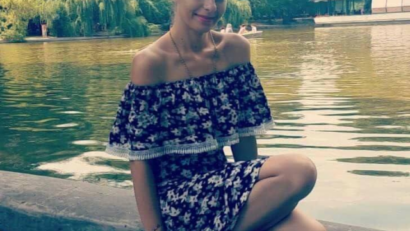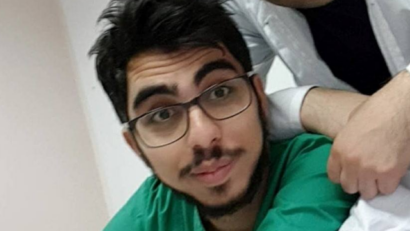Talia Delgado of Spain
Talia Delgado first came to Romania in 1998 and a few years later, namely in 2003, she decided to settle in Romania. In the more than 10 years she has spent in Romania, she has developed a rich activity mainly related to her job, journalism.

Roxana Vasile, 10.02.2016, 14:36
Talia Delgado first came to Romania in 1998 and a few years later, namely in 2003, she decided to settle in Romania. In the more than 10 years she has spent in Romania, she has developed a rich activity mainly related to her job, journalism.
Talia Delgado: “From a journalistic point of view, I found it extraordinary to know Romania and its people through the articles I wrote about them. Also, my social activity here has been rich. For a while I have been involved with the Romanian NGOs and I had the occasion to learn more about the Romanian society, what is working well and what is not working so well”.
As a freelance journalist, Talia collaborated with many publications from Spain, Belgium, Egypt and even Australia: “As regards Romania, I was asked to write articles about the country’s social developments, about how the transition process has unfolded after the fall of the Communist regime, I used to write about children, the elderly, about Romanian workers who chose to work abroad and the reasons behind their decision to do so, about the labor market in Romania that drove so many Romanians abroad. Now I write only about good things. After so many years one can see a change for the better in Romania. It’s not about malls being built everywhere in Romania, it’s more about a change in mentalities. People have started to become aware of the power of the citizens over the politicians. So far, politicians have made the rules. But the Romanian citizens have learnt to say ‘Stop. That’s enough!’ For instance, Romanians have started to protest in the streets more often. When I settled in Romania, I could see a lot of drawbacks from a journalist’s point of view. I couldn’t believe that people were not protesting and asking for their rights. Nobody would take to streets to protest. As of 2011 the street has become an important tool, and people have started to make their voice heard.”
For two years, Talia Delgado worked as a volunteer in the county of Suceava, in the northeast of Romania to later settle in Bucharest where she set up an NGO, with the help of European funds, that focuses on mass media and intercultural communication. Her activity at this NGO included the setting up of an online magazine for young people, that became very popular with the target audience and that brought her three prizes — a Romanian, a European and an American prize.
Talia Delgado: “The dearest prize to me is the one I received in Romania. To be awarded a prize in a country which is not your home country, in a language that is not your native language, is, from my point of view, extremely important! It is a very nice experience!”
At present, Talia is a trainer: “I am a trainer in communication and intercultural communication with Romanian companies that have mainly trade partnerships with Spain and South America. There aren’t many such companies in Romania, but they are big companies.”
In parallel, in an attempt to help the Spanish-speaking expats who want to work in Romania and whose number is growing every day, Talia Delgado created an online portal called hispatriados.com.: “First of all, we urge them to mingle and make friends with Romanians. An expat is prone to saying ‘well, I’ll be there for only 2 years, what’s the use of mingling with foreigners, it is easier to stay in my community who speaks my language’. But this is not the way to understand a country. When you go to a new place it is nicer to mingle with the locals and learn new things from them. And in Romania it is not hard at all to mingle with people. Romanians are very welcoming, they are always open towards foreigners. So, my advice to expats is to go beyond appearances. They should not take into account the image of Romania and Romanians fabricated by the mass media in our countries. They should try to make their own opinion. If they start with preconceived, negative ideas about a country, then their experience will surely be negative. And when you gradually come to get to know the people, to learn their language, you will get closer to their values, their culture and traditions”.
Talia Delgado is an excellent model of integration of an expat into a country of adoption, and her command of the Romanian language is unequalled. (translated by Lacramioara Simion)






























